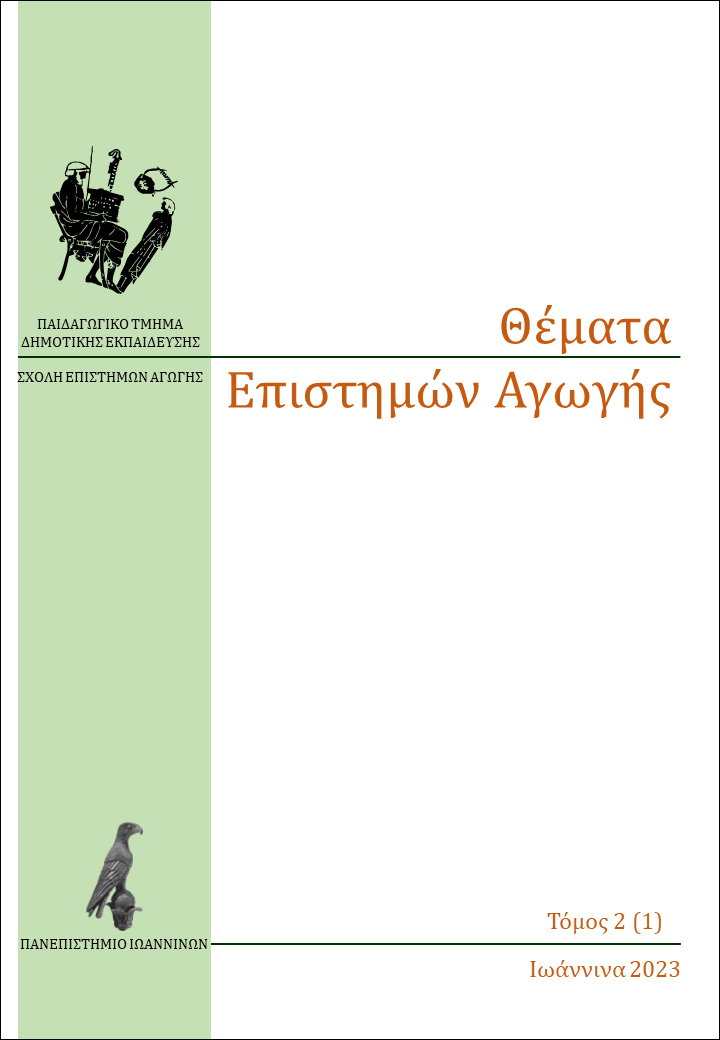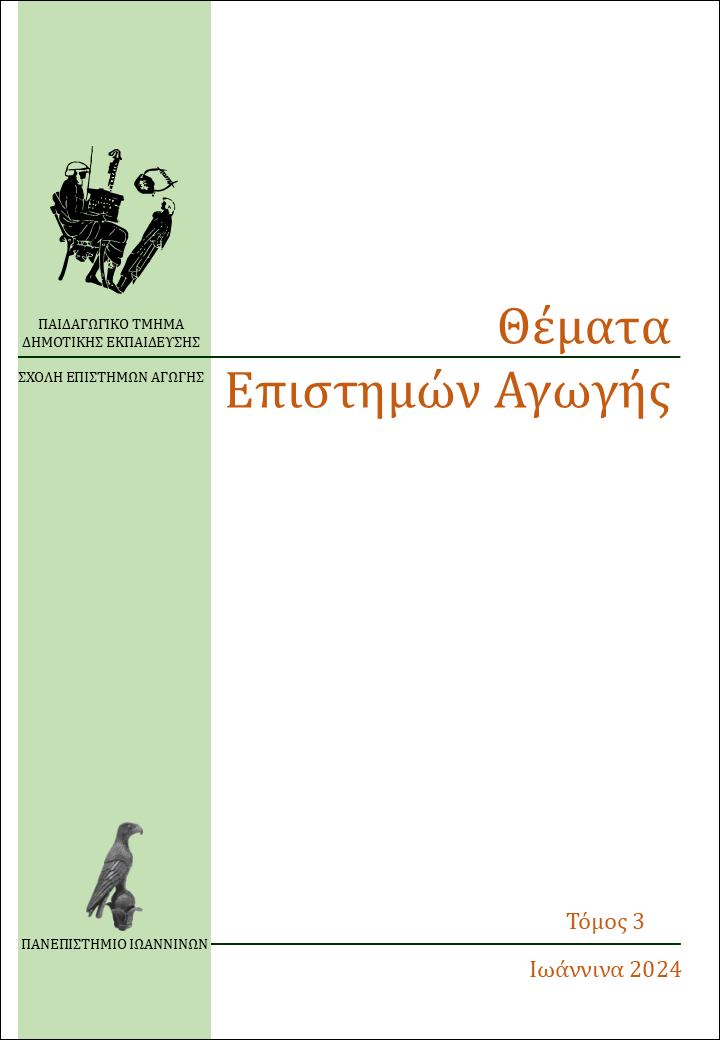Αντιλήψεις εκπαιδευτικών πρωτοβάθμιας εκπαίδευσης σε σχέση με την πολιτισμικά ευαίσθητη διδασκαλία για την εκπαίδευση μαθητών/τριών με μεταναστευτική εμπειρία
Résumé
Ο ολοένα και αυξανόμενος αριθμός των παιδιών με μεταναστευτικό και προσφυγικό υπόβαθρο στα σχολεία της Ευρώπης έχει οδηγήσει τα εθνικά εκπαιδευτικά συστήματα σε μια επανεξέταση των πρακτικών που εφαρμόζουν. Στόχος είναι να «αγκαλιάσουν» την πολιτισμική, γλωσσική, κοινωνικο-οικονομική και εθνοτική διαφορά, εφαρμόζοντας εκπαιδευτικές πρακτικές που καταπολεμούν τις ανισότητες και ευνοούν την κοινωνική και εκπαιδευτική ένταξη των παιδιών, στο πλαίσιο της κοινωνικοπαιδαγωγικής αποστολής του σχολείου. Το κατά πόσο οι εκπαιδευτικοί αντιμετωπίζουν την εθνοπολιτισμική διαφορά ως στοιχείο εμπλουτισμού της μαθησιακής διαδικασίας για όλα τα παιδιά αποτελεί βασική προϋπόθεση για την ανάπτυξη πρακτικών που ευνοούν τη διαπολιτισμική επικοινωνία. Η εργασία εστιάζει στις αντιλήψεις εκπαιδευτικών πρωτοβάθμιας εκπαίδευσης αναφορικά με διαστάσεις της πολιτισμικά ευαίσθητης διδασκαλίας. Αναπτύχθηκε ερωτηματολόγιο με 14 προτάσεις. Συμμετείχαν 123 εκπαιδευτικοί από διάφορες ειδικότητες. Η παραγοντική ανάλυση οδήγησε σε μια εκδοχή 12 προτάσεων με δύο παράγοντες: α. αξιοποίηση πολιτισμικού και οικογενειακού κεφαλαίου στη μαθησιακή διαδικασία και β. κατανόηση αναγκών παιδιών με διαφορετικό εθνοπολιτισμικό υπόβαθρο. Οι εκπαιδευτικοί φάνηκε να συμφωνούν σε μεγάλο βαθμό με τις προτάσεις του ερωτηματολογίου με τον δεύτερο παράγοντα να συγκεντρώνει υψηλότερη βαθμολογία. Οι μεταβλητές που φάνηκε να επιδρούν στη διαμόρφωση των αντιλήψεων των εκπαιδευτικών ήταν η εμπειρία με μαθητές/τριες με μεταναστευτικό/προσφυγικό υπόβαθρο και η επιμόρφωση σε σχέση με τη διαχείριση της εθνοπολιτισμικής διαφοράς.
Article Details
- Comment citer
-
Πεντέρη Ε., & Ιωσηφίδης Α. (2023). Αντιλήψεις εκπαιδευτικών πρωτοβάθμιας εκπαίδευσης σε σχέση με την πολιτισμικά ευαίσθητη διδασκαλία για την εκπαίδευση μαθητών/τριών με μεταναστευτική εμπειρία. Θέματα Επιστημών Αγωγής, 2(1), 67–82. https://doi.org/10.12681/thea.32329
- Numéro
- Vol. 2 No 1 (2023)
- Rubrique
- Επιστημονική Αρθρογραφία




